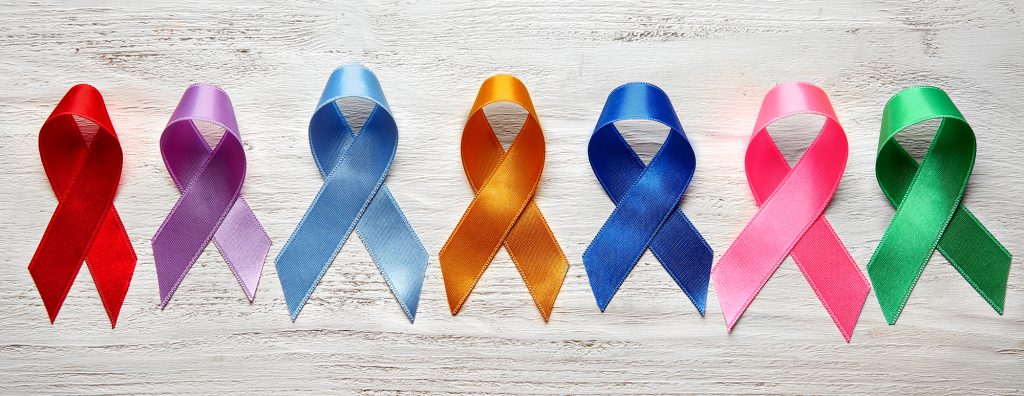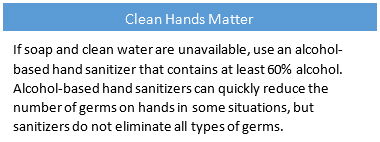Prep Your Health: Fighting Cancer During an Emergency
Posted on by
Cancer is not just one disease, but many diseases. There are more than 100 kinds of cancer, including breast cancer. In observance of October being Breast Cancer Awareness Month, this week Public Health Matters looks at how people living with cancer can prepare their health for emergencies.
Each year in the United States, more than 240,000 women are diagnosed with breast cancer. In 2008, that group included my aunt.
The diagnosis stunned us all. The good news is that with quick and aggressive treatment my aunt survived, and is, today, cancer free.
One of the biggest challenges for people living with cancer is figuring out “How do I live with cancer?” It’s a conversation that should include talking about personal health preparedness.
What would happen if you had to evacuate and couldn’t return for several days?
What steps can you take now to get ready for an emergency?
What can you do to protect your personal health?
In the event of natural disaster, such as floods, tornadoes, and hurricanes, you may be forced to evacuate your home for several days. If you have cancer, or have had cancer, you may require medicine and treatments, such as chemotherapy, or special medical equipment to prevent infection on a daily bases. Taking steps to Prepare Your Health now will help you be ready in the event that disaster strikes.
Prescription Preparedness
If you have cancer now or had cancer in the past, you may have some very specific personal needs, including prescriptions and home use medical equipment.
A major disaster, such as a hurricane, could make it difficult to get a prescription filled, which is why it’s important that you talk to your doctor about creating an emergency supply of medications, and keep an up-to-date list of any prescriptions you take.
Did You Know: Some states allow pharmacists to dispense early refills in an emergency? Contact your public health department to learn more about the laws where you live.
Click here for more tips on how to prepare your medicine cabinet for an emergency.
Plan Ahead: Cancer Survivorship Care Plan
Don’t wait for an emergency to happen, or for disaster to strike. Whether you’re fighting cancer now, or you’ve fought it in the past, work with your doctor to build a cancer survivorship plan that meets the needs of you and your family.
A cancer survivorship care plan is a record of your cancer and treatment history. Your plan should include:
- Information on your exact diagnosis, cancer stage, and the medications you take. If you’re receiving chemotherapy or radiation, know where you are in your treatment cycle
- The names of and contact information for the doctors responsible for your care, and family members in case you become separated
- A list of possible long-term effects of your treatments
- Ideas for staying healthy
Collect and protect a copy (or copies) of your plan along with your other important paperwork, including insurance cards, medical records, and personal identification.
 Avoid Infection
Avoid Infection
Cancer patients, especially those on active treatment, can have weakened immune systems, which makes them more susceptible to infections. In a disaster, the threat of infection increases due to stress, environment, and the potential for medications to be unavailable.
Here are some ways you can prepare for and protect against the possibility of an infection.
- Clean hands help prevent infections. Effective handwashing is a practical skill that you can easily learn, teach to others, and use every day to prepare for a public health emergency. It takes around 20 seconds, and can be done in five simple steps.
- Know the signs of infection. Symptoms, such as fever, chills, sweats, sore throat, nasal congestion, or vomiting, need to be brought to your doctor’s attention as soon as possible.
- Learn from your doctor when your white blood cell count is likely to be the lowest, since this is when you’re most at risk for infection. This usually occurs between 7 and 12 days after you finish each chemotherapy dose, and may last up to one week.
For more information, recommendations, and tips on how to Prepare Your Health for a natural disaster or public health emergency, please visit www.cdc.gov/cpr/prepareyourhealth.
Resources
- Be Prepared for an Emergency (CDC)
- Emergency Resources for the Cancer Community (National Cancer Institute)
- https://www.cancer.gov/contact/emergency-preparedness (National Cancer Institute)
Thanks in advance for your questions and comments on this Public Health Matters post. Please note that CDC does not give personal medical advice. If you are concerned you have a disease or condition, talk to your doctor.
Have a question for CDC? CDC-INFO (https://www.cdc.gov/cdc-info/index.html) offers live agents by phone and email to help you find the latest, reliable, and science-based health information on more than 750 health topics.
One comment on “Prep Your Health: Fighting Cancer During an Emergency”
Comments listed below are posted by individuals not associated with CDC, unless otherwise stated. These comments do not represent the official views of CDC, and CDC does not guarantee that any information posted by individuals on this site is correct, and disclaims any liability for any loss or damage resulting from reliance on any such information. Read more about our comment policy ».
good awareness